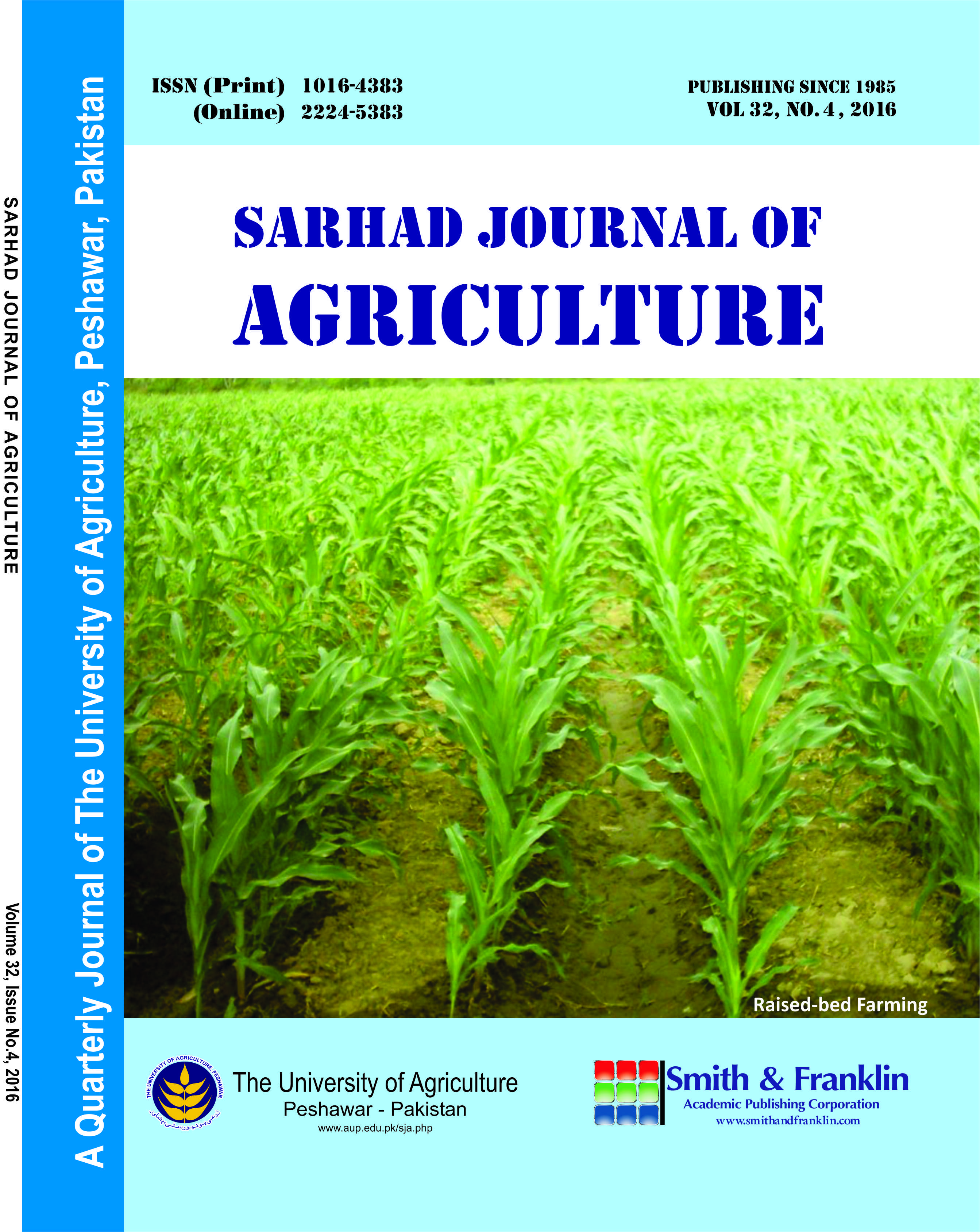Assessing Perceptions of the Respondents Regarding Socio-Economic Factors Contributing in Economic Prosperity of Rural Communities: A Case Study of District Sargodha, Punjab- Pakistan
Assessing Perceptions of the Respondents Regarding Socio-Economic Factors Contributing in Economic Prosperity of Rural Communities: A Case Study of District Sargodha, Punjab- Pakistan
Ejaz Ashraf1*, Bushra Hassan2, Nadeem Anwar2, Hafiz Khurram Shurjeel3 and Shafique-ur-Rehman4
ABSTRACT
Rural sector provides a foundation stone for economy of Pakistan. The current concept of rural development is linked to economic welfare of rural people. It involves uplifting of certain indicators of development and satisfying the needs of fragile groups of rural communities. This study examined socio-economic factors of rural life which contribute in economic prosperity. A list of union councils and villages in tehsil Sargodha was obtained from local district office of the Population Welfare Department. All rural families live in tehsil Sargodha served as population in the study. Tehsil Sargodha was selected purposively. Of the 62 rural union councils, four were selected purposively and from each selected union council two villages were selected purposively. Hence, from each village 15 respondents were selected randomly which makes a sample of 120 respondents. During the study, demographic factors such as age, Education, family structure, and professions of the respondents were assessed. Complete regression model was applied with independent factors of educational opportunities, agri-business opportunities and training opportunities. The results were significant at 5% level of significance as F (3, 119) = 140.74; p< 0.05 and explained 78.4% of the variation in dependent factor of job opportunities for the respondents which is responsible for economic prosperity of rural communities. The results from second, third, fourth and fifth objectives respectively indicated that vocational education, cane food or auto workshop businesses, computer related job opportunities, and training in poultry farm management are the core requirements for economic prosperity of rural communities in the area. It is concluded that respondents were keen enough to get maximum opportunities to participate in economic activities in order to get financial independence and to promote rural business in the area. There is a dire need to invest in expert knowledge and vocational training opportunities to bring change in the skills level of the respondents in the study area. It is recommended to create job opportunities by boosting up educational and agri-business opportunities based on the needs, skills and by providing required training for economic wellbeing of the respondents
To share on other social networks, click on any share button. What are these?







